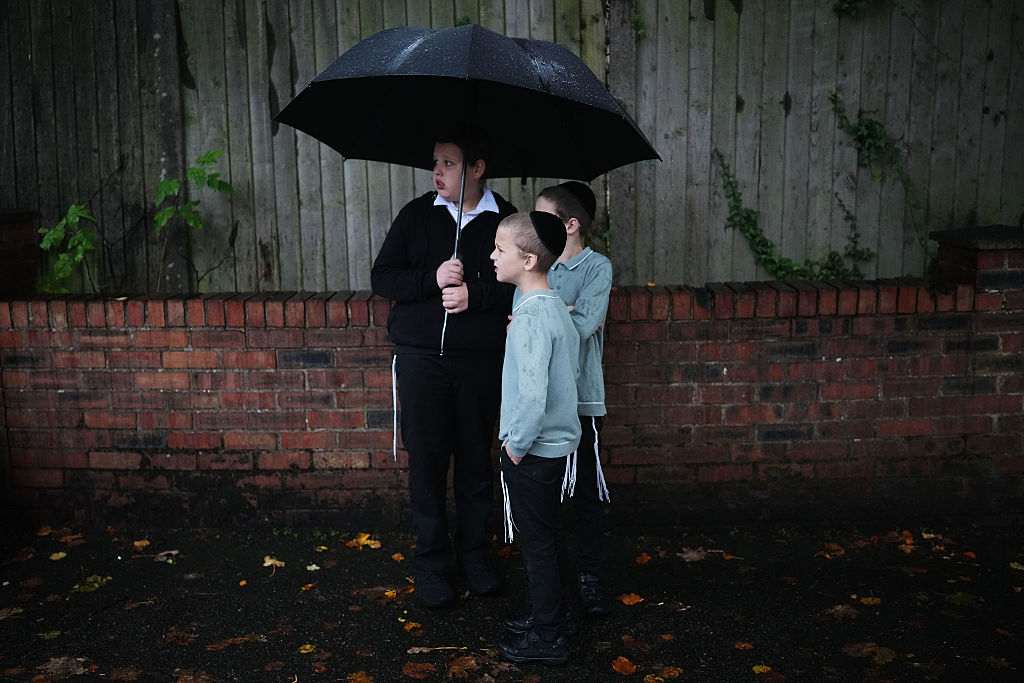Black people in England and Wales are four times more likely to die from the coronavirus, data shows
London -- Black people in England and Wales are four times more likely to die from the coronavirus than their white counterparts, according to government data released on Thursday. People of Indian, Pakistani, and other minority-ethnic backgrounds are also at greater risk of dying from COVID-19 than white people, the data showed.
The data was published by Britain's Office of National Statistics (ONS) and adjusted for age. When the figures were also adjusted to account for factors like socio-economic status and self-reported health and disability characteristics, the ONS found that black people are still nearly two times more likely to die from COVID-19 than white people.
"These results show that the difference between ethnic groups in COVID-19 mortality is partly a result of socio-economic disadvantage and other circumstances, but a remaining part of the difference has not yet been explained," the ONS said.
One hypothesis excluded
Another larger study, also published on Thursday, supported the government's findings. OpenSAFELY, which is jointly run out of Oxford University and the London School of Hygiene and Tropical Medicine, is a new project that can access the pseudonymised NHS England health data of over 17 million people.
"Up until our paper, people had very reasonably speculated that the increased risk of death among BME (black minority ethnic) people might be because of an increased prevalence of cardiovascular disease or diabetes or obesity among BME groups, for example," Dr. Ben Goldacre, Director of the DataLab in the Nuffield Department of Primary Care Health Sciences at the University of Oxford, NHS doctor, and co-lead on the study told CBS News.
"We were able to build an analytics platform of unprecedented scale using U.K. NHS data where we could run analytics across the full… health records of 17 million adults," he said.
OpenSAFELY examined health records from February 1st to April 25th and found that, once pre-existing health conditions had been adjusted for, black and ethnic minority people are still more likely to die from COVID-19 than white people.
"When you account for the presence or absence of other medical problems and other demographic features, that increased risk of death for BME people does not go away," Goldacre told CBS News.
"So that's really important, because it shows us that it's not attributable to other aspects of their medical history. So it has excluded one of the key current favorite hypotheses about why BME people are at higher risk, and it means we need to learn elsewhere," he said.
Bigger picture
Calls for greater insight into how the pandemic is affecting minority groups in Britain began after a study of early data by the U.K.'s Intensive Care National Audit and Research Centre found that more than a third of almost 2,000 critically ill patients were from a minority ethnic background, despite making up only 13% of the U.K. population. The British government launched an inquiry, and politicians, including London's mayor Sadiq Khan, called for ethnicity data to be gathered and released.
"If the information was collected and published in real time, it would help bring the true scale of the problem to light and provide more evidence about how to protect communities from the virus," Khan wrote in an April editorial in Britain's Guardian newspaper.
Jon Cornejo, who helps run the anti-racism campaign group Charity So White, told CBS News that wider factors could be at play.
"It's important to look at the bigger picture and look at the societal causes behind all of this, beyond the health frame," Cornejo said.
"People of color are more likely to be in lower paid jobs in lower paid sectors, more likely to be key workers, whether that's delivery drivers, frontline NHS staff and the rest. Because of the lower pay, you might have people of color living in households with a higher number of people within them, more cramped housing conditions. And all of these different socio-economic factors come into play in terms of why we might be seeing that disproportionate impact where people of color are over-represented in at-risk groups," he told CBS News.



